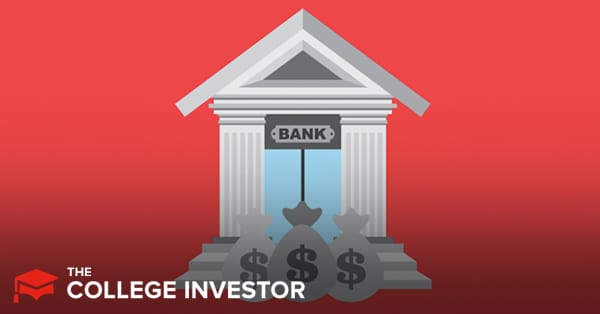
Individuals or businesses that work with government agencies may be required to have a surety bond when they do business with the government.
Also, contractors (including residential and commercial contractors) may buy these bonds at multiple stages of a project.
If you've never purchased surety bonds before, you may feel a bit confused as to what exactly they are and how they work. Here’s what you need to know about them and whether it's necessary as a business owner to become "licensed and bonded."
What Is A Surety Bond?
A surety bond is a contract between three parties:
- The obligee: This is the person or business who is entitled to some promise that needs to be fulfilled. The obligee is protected by a surety bond.
- The principal: This is the person or business that's required to fulfill certain obligations set forth in the contract.
- The surety: This is the person, business, or insurance agency which guarantees that the principal will fulfill the required duties.
A surety company guarantees that a principal will fulfill certain promises to an obligee. And if the principal fails to keep its promise (per the contract), the surety pays the obligee.
How Do Surety Bonds Work?
In a surety bond agreement, the surety promises to “make the obligee whole” if the principal reneges on contractual agreements. In practice, the surety will usually pay out a set percentage of a loss if the principal can’t meet certain agreements.
Generally, the principal will buy a surety bond prior to a large project. And small contractors can often compete with larger companies by doing so, as it guarantees performance at a certain level.
Principals often have to put up personal or business assets as collateral for the contract. Therefore, the surety (often an insurance company) can make a legal claim to those assets if the surety company has to pay out a claim.
Common Types Of Surety Bonds
Surety bonds are very unique financial contracts. Hence, there are myriad types. However, the two most common types are contract surety bonds and commercial surety bonds.
Contract
Contract surety bonds are used for construction projects. Not every construction will require a surety bond. But many larger projects will involve them.
Contractors often buy surety bonds that guarantee that they will either complete the work. If the contractor defaults the surety company has to find another contractor to complete the work. Or the surety company must compensate the project owner. These can include:
- Bid bonds: Guarantee a contractor can fulfill contractual obligations and won’t back out of a deal if it wins a bid. Bid bonds are often combined with performance bonds.
- Performance bonds: These usually involve payments to an obligee (either a project owner or an individual) if a contractor fails to meet their obligations.
- Payment bonds: These guarantee that a contractor will meet their financial obligations such as paying for labor and materials on a job.
Commercial
Commercial surety bonds are designed to protect the public. Government agencies may require people who work within certain occupations to purchase commercial surety bonds. These can include:
- License and permit bonds: These guarantee a business will adhere to laws and other regulations enforced by federal, state and local government agencies. They are often required before a contractor or other trades-person can be licensed in a particular state.
- Judicial bonds: Court bonds may be required prior to a legal proceedings. They protect people or companies from losses in court.
- Fiduciary bonds: These protect beneficiaries, heirs, or other parties if an appointed fiduciary does not act honestly or in the best interest of the beneficiary. A court may require a fiduciary bond in certain cases.
- Other bonds: There are many other types of bonds that may be needed throughout the course of doing business. Most major insurers and surety companies can help company owners buy the bonds they need to run their business.
What Does It Mean To Be Licensed And Bonded?
Many businesses are required to state that they are licensed and bonded (or licensed, insured and bonded). So a business that is "licensed and bonded" is simply working within the parameters of local law.
These businesses have proper licensing, any legally required insurance, and any bonds that are required by law. Some smaller contractors may not be legally obligated to purchase bonds. So in those cases, the contractor may be licensed and insured, but not bonded.
Does My Business Need A Surety Bond?
First, if you’re doing small scale residential contracting, you may not need to be licensed and bonded to do your business. However, contractors who are working to win larger bids will typically need a surety bond to win the bid.
Second, most establishments that serve or sell liquor will need a liquor license or a liquor surety bond. Even mortgage brokers, auto dealers, warehouse owners, residential contractors, and hair stylists may need to be “licensed and bonded” in particular states.
Keeping up to date with your required licensure is an important part of operating any business, even a side hustle. Before going into any type of business, be sure to research the insurance and bond laws in your state.
If it does turn out that you need to purchase a surety bond, you may want to consider Coverwallet. It sells virtually every kind of professional liability insurance in addition to multiple types of commercial bonds. Read our review of Coverwallet. In addition, you can check out the complete list of SBA-guaranteed surety bond agents.

Robert Farrington is America’s Millennial Money Expert® and America’s Student Loan Debt Expert™, and the founder of The College Investor, a personal finance site dedicated to helping millennials escape student loan debt to start investing and building wealth for the future. You can learn more about him on the About Page or on his personal site RobertFarrington.com.
He regularly writes about investing, student loan debt, and general personal finance topics geared toward anyone wanting to earn more, get out of debt, and start building wealth for the future.
He has been quoted in major publications, including the New York Times, Wall Street Journal, Washington Post, ABC, NBC, Today, and more. He is also a regular contributor to Forbes.
Editor: Clint Proctor Reviewed by: Chris Muller
